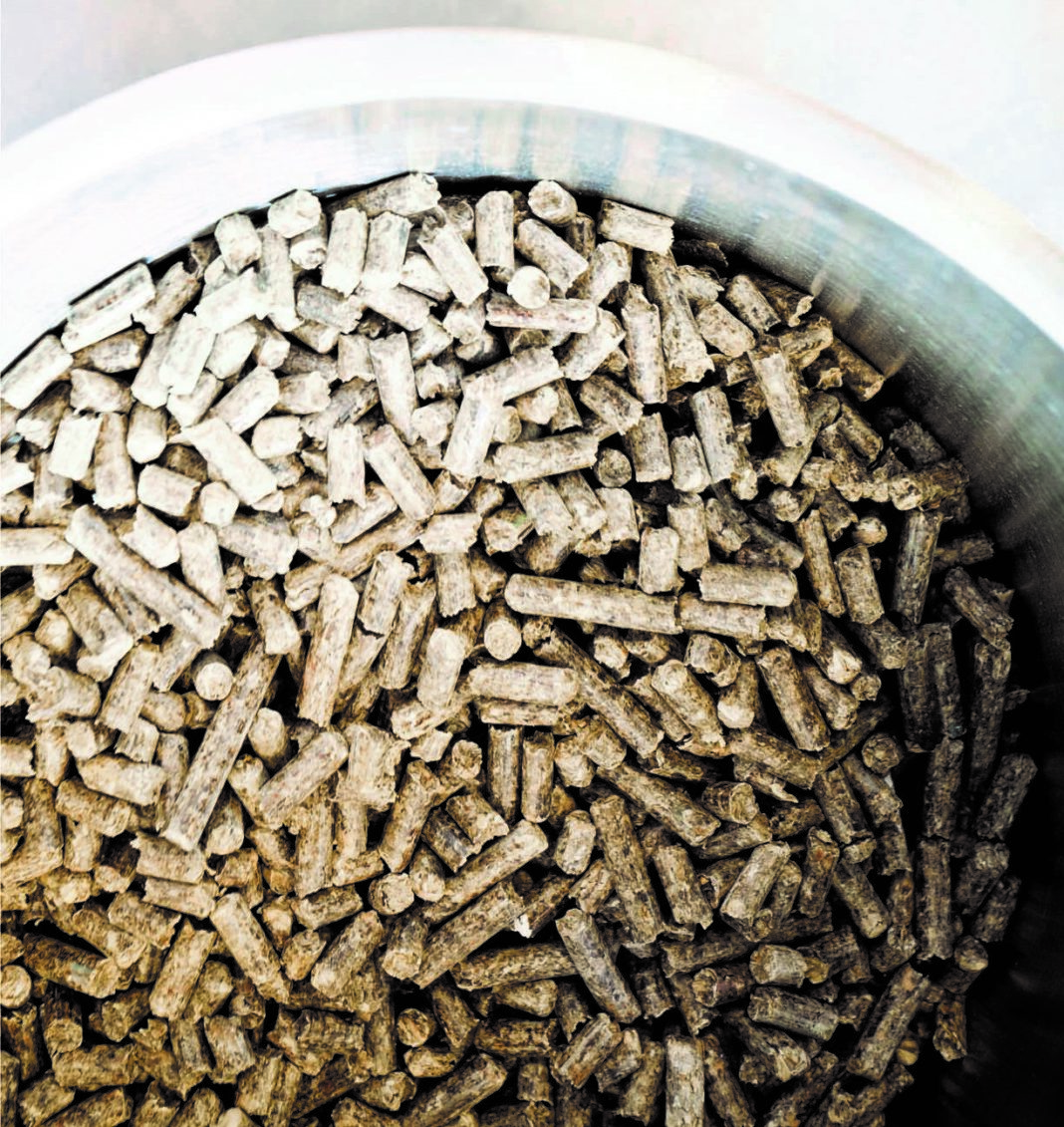A feasibility study, led by the Biorenewables Development Centre (BDC) will investigate the commercial production of sustainable, locally sourced materials, such as municipal and woodland waste, to produce biomass boiler pellets. The new, cheaper, pellets will help to reduce the region’s carbon footprint and provide a source of income for nature reserves and other conservation efforts.
The high price of biomass pellets in York and North Yorkshire threatens the continued operation of wood-fired boilers and could drive up the carbon footprint of the region if they are shut off in favour of fossil fuels. This project will assess the feasibility of producing cheaper pellets using waste material from a range of local sources.
The researchers will assess waste streams from the sustainable management of Yorkshire’s woodlands, parks and nature reserves (hedgerow clippings, wood chippings), alongside the University of York’s waste streams (food, cardboard, wood), using pilot-scale facilities based at the BDC, near York. The study will also assess the potential for sourcing material from Yorkshire’s forestry industry. The environmental impacts of the scheme will also be assessed.
The aim is to establish regionally based production that provides cheaper pellets for Yorkshire’s biomass boilers. The project will also support Yorkshire wildlife by providing an income stream from the conservation management of the region’s natural habitats.
The study has received £50,000 funding secured by the York and North Yorkshire Local Enterprise Partnership from the government’s Local Growth Fund. This is part of the LEP’s Local Energy Strategy and contributes to their Circular Economy strategy. It brings together raw material providers (North Yorkshire and York Local Nature Partnership, the City of York Council, Natural England, the Yorkshire Wildlife Trust and the University of York) with technology providers (Wilson Biochemicals Ltd and the BDC).
Peter Hurst, Lead technologist at the BDC said: “This project is an excellent example of how the BDC’s unique facilities can help de-risk the innovation process and make the most of renewable, plant-based resources.”
David Dickson, Chair of the York & North Yorkshire Local Enterprise Partnership Infrastructure and Joint Assets Board said: “The LEP has an ambition to create a carbon-negative circular economy and this study could deliver a real impact in that area. It also has the potential to unlock numerous benefits to waste management, bioenergy and the land management sector and increase the resilience of local businesses. We’re pleased to support this feasibility study with £50,000 secured from the government’s Local Growth Fund and we look forward to seeing how the work develops.”
The BDC receives funding from Research England and the European Regional Development Fund.
Note for editors
1. The Biorenewables Development Centre (BDC): is a University of York subsidiary, working at the interface between academia and industry to develop, scale-up and help commercialise new technologies using biomass and biowastes. http://www.biorenewables.org/. The BDC receives up to £2,143,211 of funding from the England European Regional Development Fund as part of the European Structural and Investment Funds Growth Programme 2014-2020. The Department for Communities and Local Government is the Managing Authority for European Regional Development Fund. Established by the European Union, European Regional Development Fund funds help local areas stimulate their economic development by investing in projects which will support innovation, businesses, create jobs and local community regenerations. For more information visit https://www.gov.uk/european-growth-funding
2. The York & North Yorkshire Local Enterprise Partnership: set up by central government, it is a business-led partnership with the public sector, using local knowledge to secure investment in projects that will make a real difference to our economy. This includes providing a single point of contact for business support through our growth hub How’s Business; investing in skills to create more quality jobs; in infrastructure to support business growth, and in homes to provide the workforce with housing.
“Local Growth Fund”
Local Enterprise Partnerships are playing a vital role in driving forward economic growth across the country, helping to build a country that works for everyone. That’s why by 2021 Government will have invested over £12bn through the Local Growth Fund, allowing LEPs to use their local knowledge to get all areas of the country firing on all cylinders. Some additional key facts:
• There are 38 LEPs covering the whole of England
• The government has awarded £9.1bn in three rounds of Growth Deals to local areas to drive economic growth.
• LEPs are investing in a wide range of projects including transport, skills, business support, broadband, innovation and flood defences. https://www.businessinspiredgrowth.com/ https://twitter.com/bizinspiredgrow
3. Wilson Bio-Chemical Ltd: using the patented Wilson System® convert the biogenic fraction of household waste (food, paper and cardboard) to sustainable biofuels and high value chemicals converting community waste streams into sustainable fuels and chemical assets for the circular economy. The Wilson System® uses clean, dry saturated steam to convert the biogenic fraction of household waste by producing a non-woody biomass pellet for use in domestic and industrial heating systems. The pellets conform to ISO 17225 and have achieved an End of Waste status. This technology will eliminate biogenic material taken to landfill and allow Local Authorities to reduce bin collections substantially.









